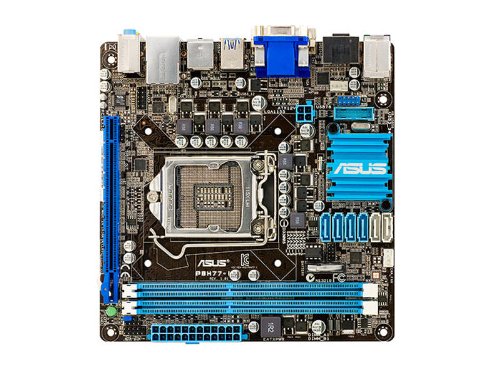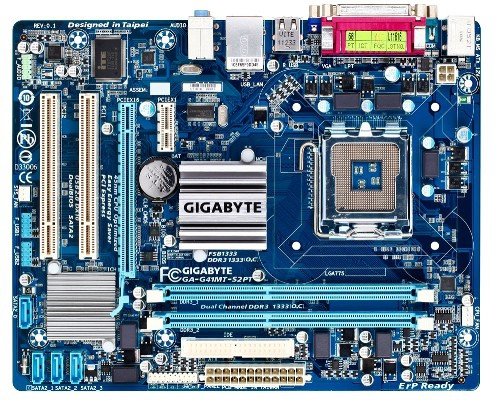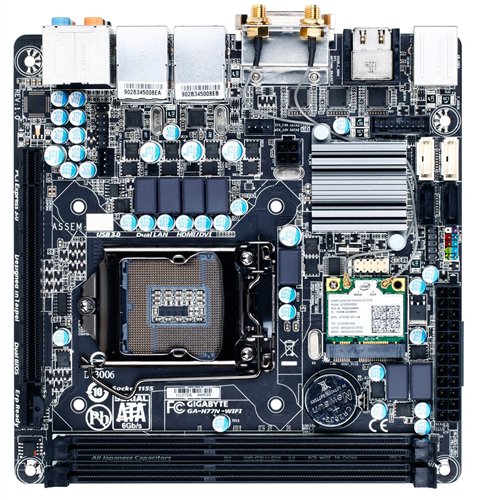
P9X79 DELUXE features the Intel X79 chipset supporting the Intel LGA2011 2nd Generation Intel Core i7 Processors. 8-DIMM Design provides maximum performance and versatility of memory configuration. Dual Intelligent Processors 3 technology integrated with new DIGI+ Power Control – capable of achieving most precise adjustment, enhanced performance and stability, and O.C. capacity for CPU & RAM. Fully ready for true PCIe 3.0, built to be future-proof with PCIe 3.0 switching IC for NVIDIA SLI support and future PCIe 3.0 peripherals. ASUS SSD Caching with no SSD capacity limitation, and it is as easy as one-click away.
ASUS P9X79 DELUXE – LGA2011 – X79 – 8x DIMM – PCIe 3.0 Motherboards





Another Fine Product From Asus sold by Amazon,
I purchased this Mainboard with Building a reasonable upper middle range computer in mind without busting out too much $$ for it.
This Mainboard is Awesome, More of a Mainboard than I expected for the money, it performs perfectly, overclocks and runs smooth with no system hang ups and has great bells and whistles like the WIFI and Bluetooth that at first I figured ya ya ok neat I’ll never use em ….. well I now have it configured to update my Ipad,Itouch,Smart phone and Mac book Pro to auto transfer files to and from them and control my sound system in the house …. it is a private well behaved Cloud system.
Ok so I installed the Intel extreme – i7-3960X LGA2011 Processor along with 16 Gig of Corsair Vengeance DDR3 memory and running it on Windows 7 Ultimate all this went into a Cooler Master 932 HAF full tower case being powered by the Corsair HX1050 Power Supply and the Processor is being cooled with a Corsair H100 Liquid cooler.
Cons? becareful once you start a build like this it will be hard to stop.
Was this review helpful to you?

|Easy Build MOBO,
Having read a number of other reviews where the user had various problems with this MOBO I was a bit apprehensive in purchasing the board. I feared the worst. I expected many problems with the BIOS. My fears were unwarranted. The MOBO POSTed the very first attempt. Granted, I was not trying to install a raid array of any kind. If I had perhaps I would have had problems. My approach with this build was to install a single HDD and SSD and then in the future add additional HHDs with a raid array.
After installing the MOBO I had read from other reviews the first thing I needed to do was to update the BIOS. I knew this needed to be done using the white USB connector on the back of the MOBO, and then pressing and holding the flash BIOS switch on the MOBO for 3 seconds (until the blue light flashed). The one thing the ASUS instructions failed to mention is that you needed power to the MOBO to accomplish the BIOS update. Perhaps this is one of those obvious things that everyone is supposed to know. The initial attempt at flashing the BIOS did not work (nothing happened). Then when the power supply was connected and turned on it worked perfectly. After this one small hiccup everything worked fine.
I chose not to use the applications and drivers provided on the CD that shipped with the ASUS MOBO. Instead I had downloaded and saved to a flash drive all the latest applications and drivers from the ASUS web site. These all installed very easily. At the end of the day, everything worked fine.
It has only been a day since the build. There is a lot to learn and play with. I used the automatic over-clock function of the ASUS MOBO and it increased the CPU speed from 3.2 to 3.9. I populated the MOBO with 32 GB of Corsair Vengeance 1600 Mhz memory modules. The initial POST indicated that the memory was operating at a speed of 1333 Mhz. This bothered me somewhat but I think I was able to change this to 1600. I will need to check if it is still at 1600 or it reverted back to 1333 after powering down the system.
Was this review helpful to you?

|Sound Problems with Vista,
It seems the X79 Chipset with a 3820 CPU will not have audio with Vista x64. Device Manager shows hardware but if you click on speaker icon/volume control it shows no audio device. Had the same exact problem with an AsRock X79 Extreme 6. I Upgraded to Windows 7 to resolve the issue because I couldn’t find hotfix for Vista. Other than that this seems to Overclock very well and remain stable. Shows a very good UEFI bios. Very good WiFi ability with antenna mounted. Before you do anything flash bios. Extract latest bios to an unlabelled usb drive and follow instructions. You won’t need to have cpu or ram installed – just power. If don’t flash a new bios, most likely you’ll have a dram problem led light (another interesting feature are the POST Leds)- after updating this board it will take just about any DDR3 Ram.
Was this review helpful to you?

|